Nothing Found
Sorry, no posts matched your criteria
Sorry, no posts matched your criteria
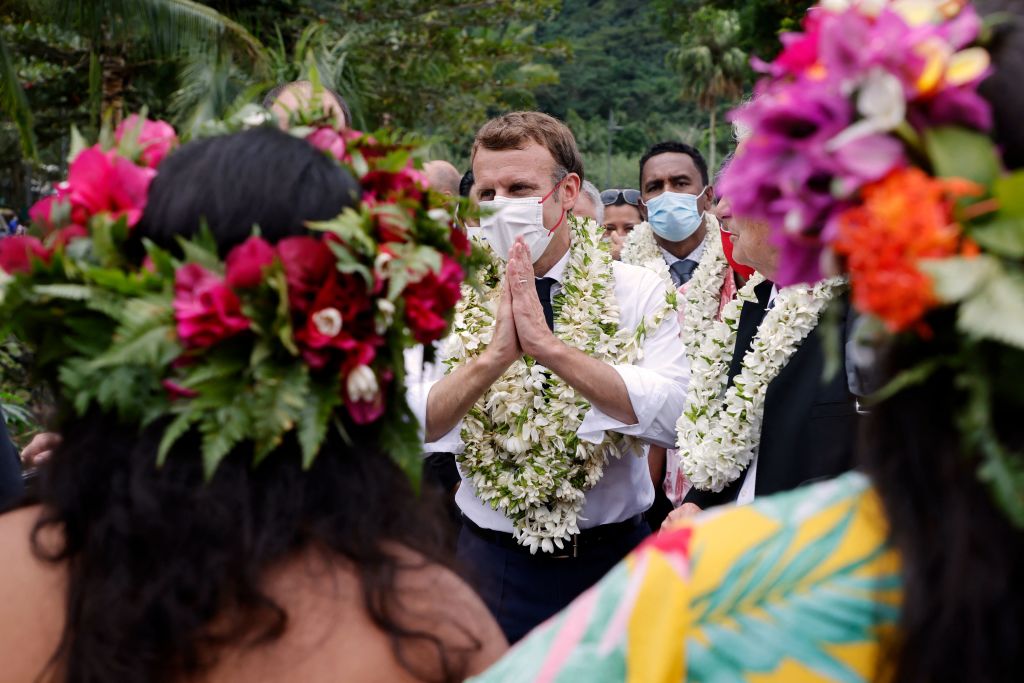
In a speech on 28 July during a visit to French Polynesia, French President Emmanuel Macron underlined the benefits of French protection in the region, within the framework of France’s Indo-Pacific strategy and with New Caledonia’s impending independence vote in mind. His protection message was directed to leaders of France’s territories in the Pacific and beyond, and indeed to Pacific island leaders generally. Macron invoked France’s nuclear-deterrence capability (based on testing conducted for decades in the Pacific over regional opprobrium) as a plus for France and French Polynesia, and implicitly for the wider region.
France bases its Indo-Pacific strategy on its sovereign presence in the two oceans through its territories, so the timing and location of Macron’s presentation are not surprising. His visit came just months before France’s pre-eminent Pacific possession votes on independence, on 12 December 2021. New Caledonia’s final vote in a three-vote process will be decisive. The previous two referendums, while favouring staying French, saw a steady, indigenous-based, increase in support for independence from 43.3% in 2018 to 47.6% in 2020.
Macron had chosen to announce France’s Indo-Pacific strategy when he visited Noumea to open the referendum process in May 2018, and stressed the importance of a French New Caledonia within that strategy. His Papeete speech followed the public release of a French paper outlining the consequences of ‘yes’ and ‘no’ votes for New Caledonia’s future and proposing extensive negotiation with France regardless of the referendum outcome. Independence parties, while accepting some partnership with France in the event of independence, have been non-committal on the detail.
In Papeete, Macron sharpened his message to New Caledonians. He addressed them early in his remarks. Stressing that the choice is for them to make, he repeated his 2018 comment that ‘France would be less beautiful without New Caledonia’. By the end of his speech, he left little doubt that a vote for independence risked forgoing the power and protection that France offered. As such, it was a message to New Caledonia and French Polynesia, where there’s also an independence movement.
Macron referred to slow implementation of his own pledges to resolve claims for compensation by victims suffering health effects from France’s nuclear testing in the Hao and Mururoa atolls. Reaffirming his intention to have more cases brought to justice, he referred at length to this recent history, which is sensitive and painful not just for French Polynesians but broadly in the region. It was Pacific Islands Forum countries that led an ultimately successful campaign of international condemnation of French nuclear testing from the 1960s. France ceased testing in 1996.
Macron acknowledged that France had chosen to carry out its nuclear testing in French Polynesia (after testing sites in Algeria were lost in 1962 following a long independence war) because the sites, ‘lost in the middle of the Pacific’, meant fewer consequences than if they had been conducted in metropolitan France. Denying that scientists and military personnel had lied (‘the military had bathed in the same water’), he acknowledged the imperfect assessment of risks, based on imperfect knowledge. He pledged to release all files—except those that ‘could put our deterrence at risk’.
Macron warned of the perils of small Pacific islands losing the protection that a nuclear power like France could offer, in a region where ‘confrontation between two major world powers was playing out’ and where states were subject to wars and pressure for influence that would grow. To be French in this context was an opportunity, he noted, because France had an Indo-Pacific strategy, one of freedom and sustainable, ‘blue’ economic and digital development, preserving biodiversity and the sovereignty of everyone in the Pacific. France had allies in this strategy and had built unique partnerships with each: Australia (an ‘essential partner’), New Zealand, India and Japan.
But, Macron said, ‘I say very clearly, in the time to come, woe betide the small, woe betide the isolated, woe betide those who will undergo influence and attacks from hegemonic powers who will come to seek their fish, their technology, their economic resources. I say clearly: Here is Polynesia. But here, it is France. And you will be protected.’
He noted what was happening in the region, ‘in Vanuatu’ and elsewhere, and said that in the face of ‘siren voices’ promising exotic projects and investment, ‘Let us attach ourselves to the mast, and hold on.’ France would be there to protect French Polynesia and its sovereignty.
Whereas Pacific countries now see France as a constructive regional partner, they have also fully supported self-determination in France’s Pacific territories. None has so far commented on the speech. As for Australia, while it sees France as a valued strategic partner in the Indo-Pacific, it has not taken a position on the outcome of New Caledonia’s referendum process and will respect the result of the vote.
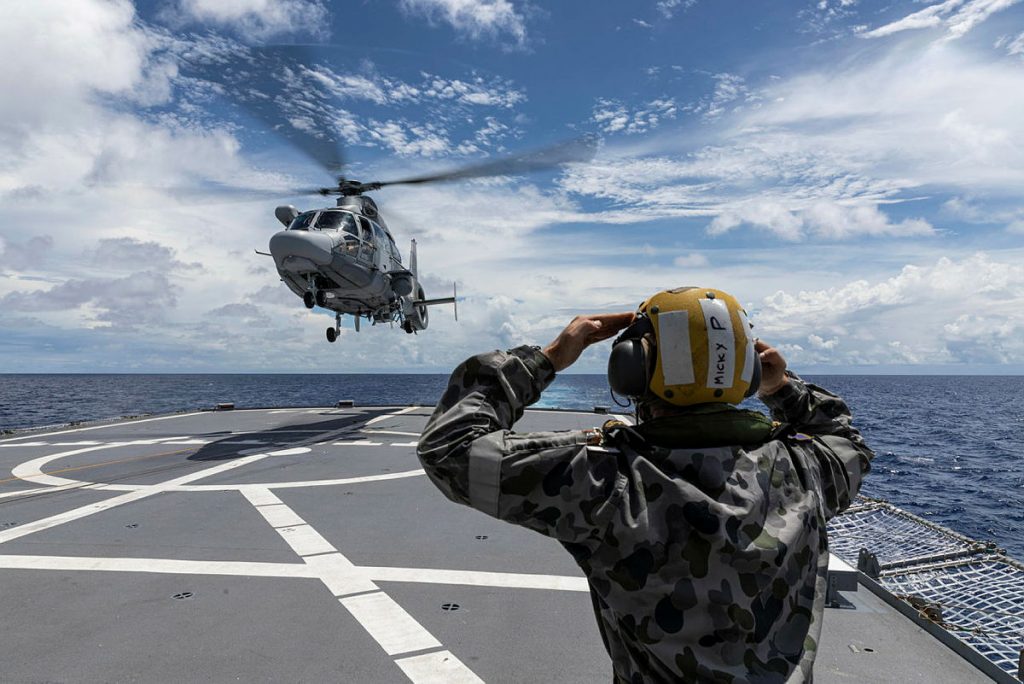
France’s strategy in the Indo-Pacific takes place in a context of regional political, economic and strategic re-engagement that dates back to the early 1990s. This has enabled France to develop a policy of partnerships legitimising its place and role as a power that’s both global and a riparian Indo-Pacific state. Until the mid-2010s, it took place in a permissive context in which the US appeared to be the undisputed dominant power of a vast region from the Eastern Pacific to the Arabian Gulf. It was essentially the rise of China and the assertive policy led by Xi Jinping, combined with the erosion of American dominance and leadership, that led France to develop a real strategy in the Indo-Pacific. The policy’s implementation relied upon strengthening cooperation with France’s major strategic partners in the region, in particular Australia, India and Japan, as well as on its overseas territories in the Indian and Pacific oceans.
The broad outlines of this strategy have many points in common with those developed by France’s major partners, particularly with regard to free access to contested global commons and the rejection of any hegemonism, but it’s nearly unique in its insistence on the importance of multilateralism, from the fight against climate change to France’s refusal to direct its strategy ‘against’ a state. Indeed, as the EU stated in March 2019, China is seen as a cooperative partner, a competitor and a systemic rival when promoting alternative governance models. But what differentiates the European and French approaches is that France has a significant territorial, human and military presence in the Indo-Pacific, which increases the stakes and France’s potential for action.
The political statutes of the départements (Réunion and Mayotte) and the overseas collectivities (New Caledonia, French Polynesia, Wallis and Futuna Islands) are different: the former are inalienable parts of the national territory, while the latter have very broad autonomy, to possibly evolve until independence as far as New Caledonia is concerned. Consequently, the policy led by Paris can’t be articulated in exactly the same way, even if the desire to promote the integration of those territories into their regional areas is common to all.
French policy in the Indo-Pacific is therefore partially contingent on the evolution of its territories on the statutory level and their will and capacity to be relays for regional action in Paris. Their low economic, energy and food autonomy is unlikely to change in the short or medium term, while their defence and security remain the exclusive responsibility of mainland France. On the military level, France’s pre-positioned capabilities are just sufficient to ensure the missions of sovereignty and in its regional cooperation activities, Paris seeking to compensate for its limits, notably by the development of long-distance air and naval projection capacities.
It’s certainly in terms of its economic presence and official development assistance (ODA) commitment that the French strategy suffers from the most significant limitations, which may nevertheless be offset by a growing commitment from the EU. The EU strategy for cooperation in the Indo-Pacific region, which should be released in September 2021, may ease that pressure. Indeed, in a context of multiple and heavy external commitments (in Europe, Africa and the Near and Middle East), France can’t engage more in the Indo-Pacific other than through strategic partnerships allowing it to pool efforts at all levels (political, military, economic) to meet China’s and global challenges (climate change, environmental protection, health, terrorism, piracy, cybersecurity and so on).
By proposing the construction of an ‘Indo-Pacific axis’ to his Indian and Australian partners, President Emmanuel Macron aimed to highlight the potential for trilateral cooperation in the region, in particular in the Indian Ocean, taking into account the French overseas territories and their fragile neighbourhoods. One of the main tools at France’s disposal is to contribute to the construction of a regional political and security architecture to better respond to challenges by promoting the development of the capacities of vulnerable countries, particularly in the regions surrounding its overseas territories.
Among the avenues for progress, Australia could consider taking up observer status at the Indian Ocean Commission, as that subregional cooperation platform is likely to play an increasing role in development, environmental protection and maritime security. Australia could also share its experience gained from the Pacific Fusion Centre, with a view to the centre’s possible duplication in the southwest Indian Ocean, and consider having a liaison officer at the Madagascar-based Regional Maritime Information Fusion Center (a body supported by the Indian Ocean Commission and responsible for maritime domain awareness in the Western Indian Ocean).
France became a full member of the Indian Ocean Rim Association in December 2020, so exchanges with France could develop in that context, so that the association becomes a place of exchange and cooperation on climate and security issues. Finally, in its development assistance policy, Australia could consider increasing ODA directed to East African states bordering the Indian Ocean, while the strengthening of France’s development assistance in the South Pacific could possibly involve the conclusion of a partnership agreement between the French Development Agency and the Australian Department of Foreign Affairs and Trade.
This is an excerpt from ASPI’s latest Strategy report, France’s Indo-Pacific strategy and its overseas territories in the Indian and Pacific oceans: characteristics, capabilities, constraints and avenues for deepening the Franco-Australian strategic partnership, released today.
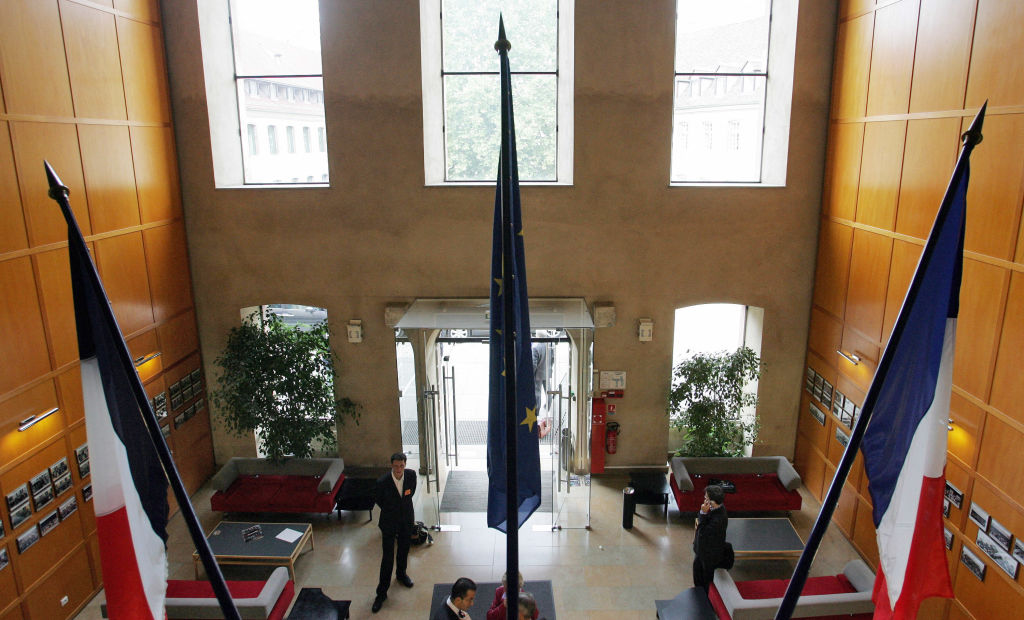
On 8 April, French President Emmanuel Macron announced that he will close France’s elite postgraduate school for training public leaders, the École Nationale d’Administration (ENA). Macron, himself an énarque (as graduates are known), says he wants to encourage equal opportunity and national excellence, and respond better to the challenges of Covid-19. But eliminating ENA will likely represent only a negligible step toward this goal.
Ironically, ENA was established in 1945 by General Charles de Gaulle to break up the French elite and overturn a system of patronage and spoils that had produced a corrupt and inefficient public administration. Admission to the school was thus subject to competitive examination, with those winning places offered a salary for their studies.
Similarly, the United Kingdom’s Northcote–Trevelyan reforms a century earlier—which drew on Sir Charles Trevelyan’s experience rooting out corruption in Britain’s Indian civil service, as well as on the example of imperial China—sought to introduce recruitment by open, competitive examination and make promotion merit-based. Subsequently, countries from the United States, Japan and China to Ghana and Nigeria have sought to embed meritocracy in their public administration, many by using examinations.
The problem today is that the examination system no longer serves to identify talent and equalise opportunity, but instead has fuelled a growing market in expensive private preparatory education that benefits wealthier students. So, while 29% of ENA students in the 1950s came from working-class backgrounds, by 2003, it was only 9%.
Likewise, standardised US college-entry tests, originally intended to help top universities diversify their applicant pool beyond rich students from exclusive prep schools, are now seen as ‘a proxy for privilege’. This year, a revolution took place when Covid-19 disruptions meant that university admissions departments had to make test results optional. This led to a huge increase in applications to top schools and to more diverse freshman classes. The University of California, Los Angeles, for example, reported a 48% increase in African American applicants, a 33% increase in Hispanic applicants and a 16% increase in Native American applicants.
In the UK, pupils from private fee-paying schools had until recently been seven times more likely to gain a place at Oxford or Cambridge than those from non-selective state schools. Oxford now uses contextual data that considers students’ individual backgrounds to understand their achievements, which is increasing undergraduate diversity.
Then there is the problem of elite universities themselves relying heavily on examinations to test, drill and rank their students, as ENA famously does (Macron came fifth in his cohort). A more effective approach would focus on the interpersonal skills vital for good public service, such as learning to mobilise, support and encourage others, and discerning people’s abilities. A diverse public service will be a stronger one only if those in charge know how to make diversity a strength.
ENA was a solution to two major challenges. In 1945, France needed to attract the best possible talent into its public administration to rebuild after World War II. Equally, the government needed to comprehend and represent a wide range of citizens, rich and poor, and prove that it could serve them better than communism could.
Today, many governments face a similar task. To build back rapidly from the pandemic (as China is already doing), they must step in after decades of standing back. And they must rebuild public trust in the face of a powerful populist backlash against ‘elitist’ government.
Professional schools’ admissions should therefore reflect what the public sector needs rather than what is administratively convenient. This might mean relying less on test scores and more on alternative measures of ability, which take time, experienced judgement and adequate resources to develop and implement. Educating public leaders will also require public-sector organisations to invest in supporting their employees’ studies, and extensive fundraising so that a diverse range of students can attend.
Keeping these leaders in public service is another challenge. When asked why énarques are increasingly choosing the private sector over public administration, one recent student said that French government ministries were employing big consultancy firms to make strategic decisions that ENA graduates once made.
The French government has signed at least 575 contracts with private consultancies since October 2018, for services ranging from developing economic recovery plans to charting a zero-carbon transition to helping combat Covid-19: McKinsey & Company, not the health ministry, seems to be leading the country’s vaccine rollout. Likewise, the UK’s Covid-19 test-and-trace system was set up almost entirely by consultants and outsourcing firms. The UK government has even turned to consultants to advise it on how to reduce its reliance on consultants.
If governments give the exciting policy work to outside firms, some of the best civil servants will leave. By contrast, smart public agencies, like those in Singapore, give strategically important assignments to their best employees to retain them and develop their skills.
And when politicians and their advisers denigrate ‘bureaucrats’ or ‘the blob’ (as a former UK government adviser described the British civil service), they may well be creating a self-fulfilling prophecy. If the narrative is that the public sector is useless, what hope is there that it will attract or keep outstanding people?
Britain’s successful Covid-19 vaccine rollout has highlighted the benefits of keeping government in the driver’s seat, bolstered by private-sector leaders willing to help pro bono. This arrangement combines the best of the public sector (including factors like people’s trust in the institutions that are vaccinating them) with the advantages of a venture-capital approach to assessing risk and allocating resources.
Three weeks after Macron’s announcement, it’s now clear that he is not abolishing ENA but rather reducing its annual intake (from 80 students to 40) and renaming it. But the challenge for France is to build a public administration ambitious enough to attract people of purpose and talent, but also open enough to recruit from a much wider cross-section of society. Tinkering with ENA will not achieve this.
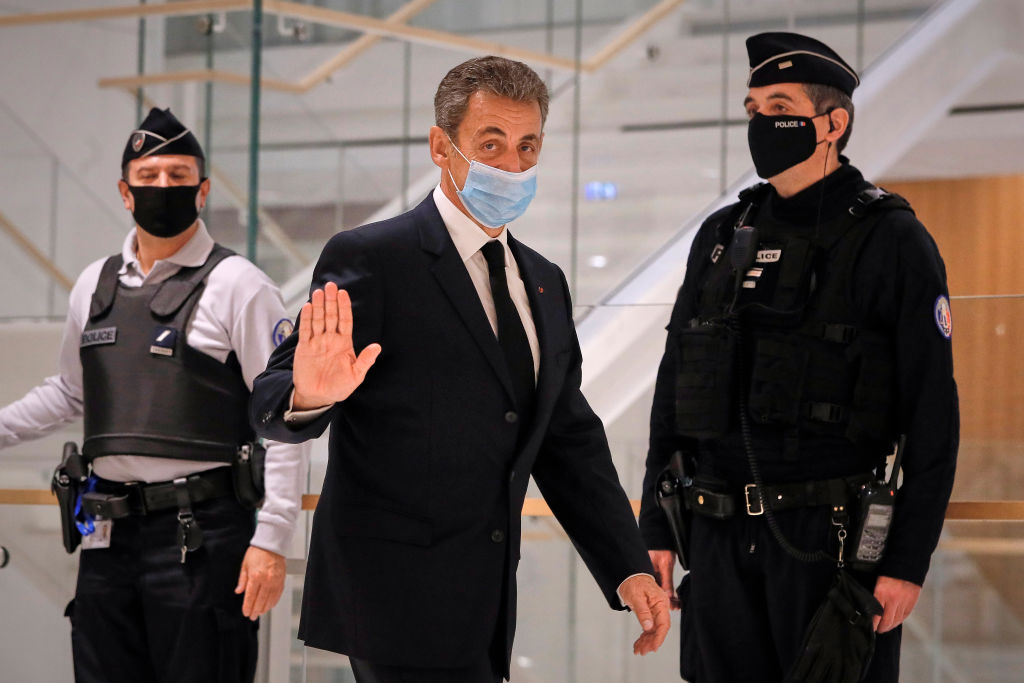
The harsh sentence handed down to former French president Nicolas Sarkozy, who was found guilty of influence peddling, confirms anew an ancient truth of politics. Even in the world’s most firmly entrenched democracies, corruption remains a curse.
Power always gets you more power. It works its magic better than greasing palms with money. The strong don’t need to wave their purses. Five hundred years before the verdict against Sarkozy, Machiavelli famously declared in his Discourses that ‘Gold alone does not procure good soldiers, but good soldiers will always procure gold.’ In other words, clout beats cash.
So, power is the hardest currency in politics, creating temptations that can’t be exorcised but must be contained and controlled. This is why democracies have devised intricate checks and balances—above all, an independent judiciary, something despots don’t need to worry about. The three-year prison term given to Sarkozy, the mightiest person in France from 2007 to 2012, shows that the French system is working as designed.
The signal sent by the Parisian court couldn’t have come at a better time. Everywhere, darkness is supposedly descending on democracy. The Covid-19 pandemic is said to undermine the separation of powers everywhere, tilting the balance towards a grasping executive, which threatens freedom in the name of safety. Aren’t lockdowns the first step into servitude?
Moreover, authoritarianism is rampant in Eastern Europe, and strongmen are ruling from Budapest to Beijing and Brasilia. Even in the United States, the world’s oldest democracy, President Donald Trump spent four years attacking (and stacking) the judiciary and incited a violent insurrection at the Capitol, the seat of the US Congress.
Against this backdrop, the verdict against Sarkozy, which he will appeal, spells out a reassuring message in troubled times. Chief financial prosecutor Jean-François Bohnert highlighted the symbolic significance of a case involving ‘a former president of the Republic who was once the guarantor of an independent judiciary.’ As the court wrote in its ruling, Sarkozy had ‘used his status as former president … to reward a magistrate who had served his personal interests.’
Sarkozy is not the first French president or senior official to face the bench. Jacques Chirac, president from 1995 to 2007, was convicted in 2011 of misusing public funds when he was mayor of Paris. François Fillon, Sarkozy’s former prime minister, was sentenced last June to five years in prison (three suspended) for embezzlement. Christine Lagarde, now head of the European Central Bank, was convicted on charges of ‘negligence with public money’ while she was France’s finance minister under Sarkozy. Jerome Cahuzac, the budget minister under President François Hollande, was sentenced in 2016 to three years in prison for tax fraud.
Now, the frequency of such crimes—and not only in France—suggests a depressing pattern: the progressive erosion of public trust across the Western world. These incidents heighten suspicions that politicians use their muscle to benefit themselves or their parties; hence an endless string of campaign-finance scandals shaking one democracy after another.
Actually, their citizens should take heart. This side of neo-authoritarian Hungary and Poland, the democratic ship of state isn’t sinking but plowing ahead, no matter how strong the headwinds. The rule of law and the separation of powers, enshrined in every Western constitution, remain strong, even in perilous times when economic and health catastrophes torment the soul and strengthen the grip of the all-providing state.
In fact, electorates have become more sensitive to misdeeds in high places. It is a plausible assumption that during the French Fourth Republic (1946–1958), let alone during the Third (1870–1940), former heads of government wouldn’t have been given three-year prison terms. ‘Transparency’ and ‘accountability’ are the new battle cries in the democratic arena.
Just consider Italy, known as the land of arrangiarsi—making do, wiggling through. And yet, Silvio Berlusconi, a three-time prime minister, has been indicted dozens of times. Finally, in 2012, he was sentenced to four years for tax evasion. Better late than never.
And then there’s Trump, Berlusconi’s heir as the world’s populist-in-chief, who tried to cow and outflank the judiciary and Congress. Yet, when democracy was on the line, as it was in the months after the 2020 presidential election, even his own appointees to the Supreme Court ruled against him. The occupation of the Capitol by his loyalists on 6 January briefly delayed but did not disrupt Congress in confirming the election of Joe Biden as president. The institutions proved mightier than the mob.
From France to America, democratic countries are affirming the fundamental principle of government by law, not by men and women. That is the message of our time that should reassure the doomsayers who believe that despotism is on a roll. Some may carp that Sarkozy, if his appeal is rejected, will have to serve just one year, and then in the comfort of his home, guarded only by an electronic bracelet.
Yet the larger moral of this drama of crime and punishment is the supremacy of the law, which goes back to the English Magna Carta of 1215. Its 63 clauses boil down to a single commandment: No ruler stands above the law.
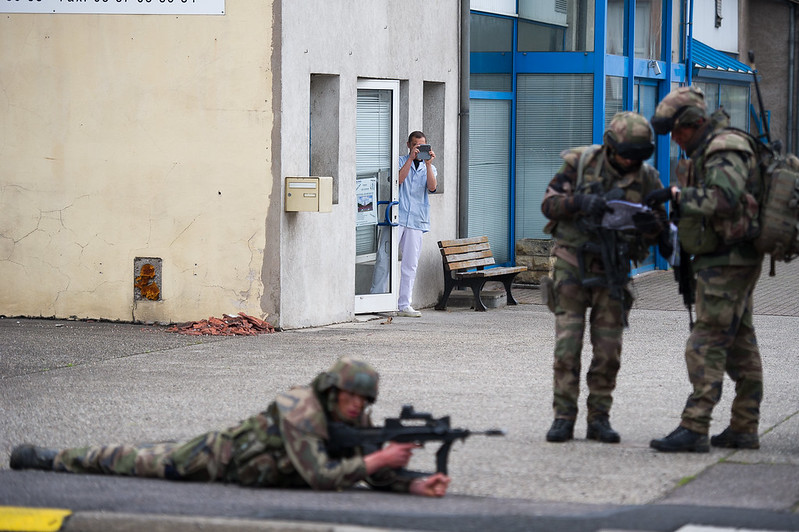
On 6 June 2020, without fanfare, the chief of the French army, General Thierry Burkhard, released his 10-year strategic vision for the Armée de Terre.
The lack of pomp surrounding the launch of Burkhard’s vision, appropriate to France’s Covid-19 situation, doesn’t diminish its significance. The French chief’s approach clearly conveys prescience, purpose, uncomplicated principles and another point of convergence in the growing partnership between the Armée de Terre and the Australian Army.
Before examining the content and characteristics of Burkhard’s plan, it’s worth reviewing its backdrop.
There is broad acknowledgement that the Armée de Terre is undergoing its most consequential change since its 1996 ‘professionalisation’. Triggered in part by the strategic shock of France’s 2015 terrorist attacks, this transformation encompasses force structure and design, force generation, funded modernisation and human resources.
At the same time, the Australian and French armies are pursuing an enhanced bilateral partnership founded on shared missions, agreements, objectives, philosophies, values, programs, opportunities, challenges and geography.
Reflecting its substantial territorial holdings in the Indo-Pacific, its perspective of the near region’s potential and its longstanding leadership ambition, France is actively reinforcing its regional presence, posture and pursuit of both common and unilateral objectives. This reinforcement is manifesting in cooperation between the Armée de Terre’s highly capable elements in New Caledonia and the Australian Army’s combat formations and training centres.
Prescience is a key feature of the Burkhard manifesto. Consistent with Australia’s recent defence strategic update and the army chief’s command statement, the general paints a bleak picture of the coming decade. He acknowledges mounting pressure on the European project and the international status quo, increasing employment of emerging technologies for coercive and disruptive means, the acceleration of ‘grey zone’ activities, and escalating internal tensions.
In addition, consistent with the French army’s prognosis on future land warfare, Burkhard infers the end of three prevailing premises: Western military superiority, the trend of limited wars, and efficiency as the cornerstone of political–military thinking. In this context, ‘efficiency’ means deploying the best-tailored forces, drawn from compact techno-professional armies, to achieve a disproportionate political, operational and reputational impact—with the bare minimum of boots on the ground.
Finally, Burkhard portends high-intensity, multidomain, state-on-state conflict, testing France’s resilience in a manner unseen since World War II, triggered well within traditional warning times.
In response, he presents the Armée de Terre as central to France’s enduring security, stability and prosperity. Burkhard communicates a resolute purpose for the army. He seeks to strengthen its ability to operate, lead, fight and win—no matter the threat or contingency. His goal is for a reinforced land force whose legions are characterised by superior warfighting mass and technology that can rapidly deploy, readily integrate, adapt and persist across all domains. Remarkably, he identifies the Armée de Terre as a strategic capability in its own right—a deterrent role (and prestige) traditionally reserved for France’s nuclear maritime and air forces.
Burkhard articulates four actionable and uncomplicated principles to strengthen the Armée de Terre’s preparedness. Recognising that the French soldier is at the heart of its capability, the first principle is to optimise the potential and professionalism of the army’s people. Second, the army will master the new capabilities and technologies offered by its unprecedented modernisation, ‘changing the way it operates and fights’. A transformation in the level, frequency and intensity of multidomain warfighting and partnership-oriented training is probably the most avant-garde aspect of Burkhard’s vision. It’s the key he will use to unlock his ambition for a land force characterised by superior mass and technology. The French chief identifies this endeavour as his most important to ensure the army’s future readiness. Finally, he seeks to reduce the Armée de Terre’s ‘bureaucratic tempo’, thereby gaining time and improving internal agility, flexibility and responsiveness.
Supporting Burkhard’s approach is an action plan involving 12 projects. These incorporate human resources, modernisation, innovation, doctrine, training, sustainment, reserve force and process reforms.
It may surprise some that in most aspects, and certainly the ones that matter most, Burkhard’s vision for the Armée de Terre is nearly indistinguishable from his Australian counterpart’s intent statements. There’s also an affinity between the French chief’s prescience, purpose and plan and that conveyed by Australia’s recent defence strategic update and force structure plan—particularly the elements referring to strategic context and land power response. This convergence bodes well for two armies committed to working together in pursuit of compatible interests in Australia’s increasingly contested region and beyond.

When discussing their nation’s defence relationship with France, many Australians express perplexed curiosity. The prevailing view appears to focus on points of difference rather than confluence.
In reality, the Australia–France defence partnership has been growing rapidly and is increasingly characterised by points of convergence, not divergence.
It may surprise many that shared historical, geographical and cultural points set the scene for closer cooperation.
For over a century, both nations have fought to preserve mutual interests and defeat common threats. This struggle endures in the Middle East, Africa and the Asia–Pacific region. Canberra and Paris have always maintained a connection by virtue of France’s Pacific territories. New Caledonia is the closest foreign soil to Brisbane. Australia’s fourth overseas diplomatic mission was to Noumea, after London, Washington and Ottawa, and before Wellington. In terms of shared values, liberté and freedom, egalité and ‘a fair go’ and fraternité and ‘mateship’ provide a more profound point of correlation than most may perceive.
Both nations prioritise preserving the rules-based order, internationally and, increasingly, regionally. France’s defence policy for the Indo-Pacific, expressed through the Indo-Pacific Axis, its capstone strategic documents, public speeches and tactical actions, are clear, consistent and complementary with Australia’s posture, as expressed in its 2016 defence white paper and 2020 defence strategic update and force structure plan. The French military aspires to be the ‘benchmark’ military in Europe, consistent with Australia’s ambition to have submarines that are ‘regionally superior’. Both militaries share similar objectives, programs, perspectives, challenges and opportunities.
There’s been significant growth in joint military and single-service bilateral engagement. During the past two years, the frequency of high-level defence meetings has increased several times over. Our forces have inked important agreements on intelligence sharing and logistics support. France has deployed its nuclear aircraft carrier battlegroup to Australia’s region and, in 2020, prior to the onset of Covid-19, was sponsoring the largest‑ever humanitarian assistance and disaster relief exercise in the South Pacific, Exercise Croix du Sud 2020.
It would be reductionist to define the bilateral maritime relationship through the prism of the $80 billion Attack-class submarine contract, though it has brought a deeper partnership. Since the contract was signed, both navies have looked for opportunities to engage. They have created Exercise La Perouse, an annual maritime exercise in the Indian Ocean. Other examples of the rapid growth in the bilateral maritime engagement include high-profile port visits, particularly to Noumea, at-sea interaction, information and intelligence sharing, training and, in the near future, combined patrols in Australia’s region.
Both armies pursue people-to-people links, routine benchmarking and interoperability. Leadership engagement has greatly expanded over the past two years, and modernisation and innovation programs, human resources strategy and training methodologies are being made increasingly compatible. It is now commonplace to see personnel from both nations’ armed forces participating in each other’s aviation, amphibious, leadership, and close combat and combined-arms courses, training and exercises. A habitual partnership is emerging between the Armée de Terre elements based in New Caledonia and Australia’s combat brigades.
Now, the Australian Army is seeking to draw on the Armée de Terre’s extensive and unique warfighting experiences from sub-Saharan Africa.
In 2018, France committed Rafale fighter aircraft to Australia’s Exercise Pitch Black. Deploying lead-in fighters for an Australian-led exercise 14,000 kilometres away was no small commitment. This engagement, which would have been repeated in 2020 but for the Covid-19 outbreak, reflects several points of convergence between the two air forces: complementary regional interests, training for high-intensity conflict against a peer-state adversary, and the pursuit of interoperability with ‘benchmark’ air forces.
Points of difference between nations and their militaries can be frequently exaggerated, resulting in missed opportunities. The distance between Australia and France is typically cited as a significant impediment to the partnership. Yet the closest French territorial capital, an increasingly important one, is geographically closer to Canberra than Wellington is. Moreover, convergence means there’s probably never been a time when the ‘distance’ between our countries has been less relevant. Despite our strategic and military differences, the points of confluence, and opportunities for collaboration, are profound.
Accordingly, Australians, and indeed the Australian defence community, should be informed by, and optimistic about, the rapidly growing bilateral Australia–France defence partnership. This partnership has not reached its potential. There is considerable room for additional growth, regionally and between Australia and metropolitan France.
Closer bilateral engagement is revealing additional opportunities for convergence, and enhancing an increasingly important defence partnership.
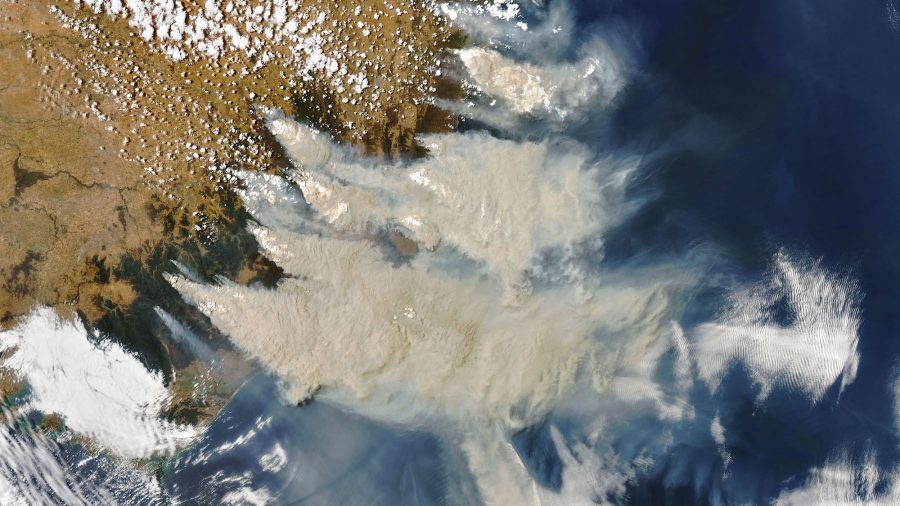
During this time of national catastrophe in Australia, messages of solidarity have been pouring in from friends all over the world. For me, many have come from French friends in Europe and the Pacific.
My response includes the hope that this disaster may reinvigorate Australia both to continue to fulfil its international environmental commitments and to work with its friends to urge all jurisdictions to meet the global challenges of climate change, particularly those with a major impact, such as China, the US, the EU and India.
China, India and France (through its territories) are all, like Australia, located in what’s now called the ‘Indo-Pacific’. I have argued that Australia’s idea of the Indo-Pacific is a murky one. The concept better serves the interests of subscribers with global leadership pretensions, such as India and France, than our own. This is because, while Australia plays the handling of China within the Indo-Pacific concept with ambiguity, others overtly push the idea of clubbing together to ‘balance’ China. None of them has China as its number one trading partner as we do. And, while our regional cooperation with South Pacific neighbours hasn’t been perfect, arguably France, India and the US all have less successful records in their own immediate regional neighbourhoods. India, for example, engaged in war with its neighbour, China, in the 1960s.
France came on board the Indo-Pacific concept with an announcement by visiting President Emmanuel Macron at Garden Island in May 2018, which at the time puzzled many observers who had never considered his idea of a strategic arc from Paris through New Delhi to Canberra. His main game became clearer to those new to French Pacific policy when he went on to use the concept in New Caledonia as a way to nudge voters who were soon to vote for or against remaining French.
While Australia dances around the idea of who is part of the Indo-Pacific, and whether or not China is included, Macron was up front. Remain with France, he told New Caledonians, and you will have a strong capability to resist the encroaching influence of a hegemonic China at your doorstep. New Caledonians voted 57% to stay with France (however, the remaining 43% comprised virtually the entire population of indigenous Kanaks, making the next two possible votes on independence before 2022 a matter of ongoing interest).
Macron’s decision to make his announcement in the South Pacific was no accident. From the 1990s, when French senior officials routinely denied any strategic motivators for determinedly retaining France’s string of overseas possessions, particularly in the Pacific, a series of French public analyses has highlighted the value of those possessions in extending France’s influence (what it calls rayonnement) and in engaging it in parts of the world that are becoming more significant as great-power balances change and new resources are in ever-growing demand.
France has exerted considerable effort in the past 20 years to restore a positive image in the Pacific, where it was seen as a pariah in the 1970s and 1980s for its nuclear testing there and for rejecting demands for independence. It has worked with Australia and New Zealand in disaster management and fisheries intelligence-sharing in the FRANZ arrangement, conducts regular defence exercises with them and other island armies, and participates in the Pacific Islands Forum and the South Pacific Commission. It has also not shirked from using its approach on climate change, which is more similar to that of the island governments than to Australia’s, to shore up its regional position, providing helpful support (albeit small-scale relative to Australian assistance even in this contentious space).
While Australia, like regional governments, values the constructive role of France and, probably more than most, sees strategic benefit in France’s positive engagement, including in the ‘Indo-Pacific’, Canberra doesn’t set its regional activities so overtly against China as does France.
The eyes of the world have somewhat uncustomarily turned towards Australia as millions of hectares burn. Along with sympathy, overseas demonstrations cast blame directly at alleged Australian government policy insufficiency.
The Australian government should direct its diplomats overseas, as they express appreciation for the sympathy of overseas governments, to defend and reaffirm the national record in fulfilling commitments, and to seize this opportunity to urge all governments to address global environmental concerns practically.
Here, the Indo-Pacific dynamic takes on a new potential role. Surely Australia can work with France—a prominent champion in combating environmental threats—to urge major emissions contributors (India, the US, and, yes, China) to make an Indo-Pacific environmental effort. Apart from having a real impact on emissions, this could lend a more inclusive, cooperative and enduring purpose to the Indo-Pacific concept than has been evident to date.
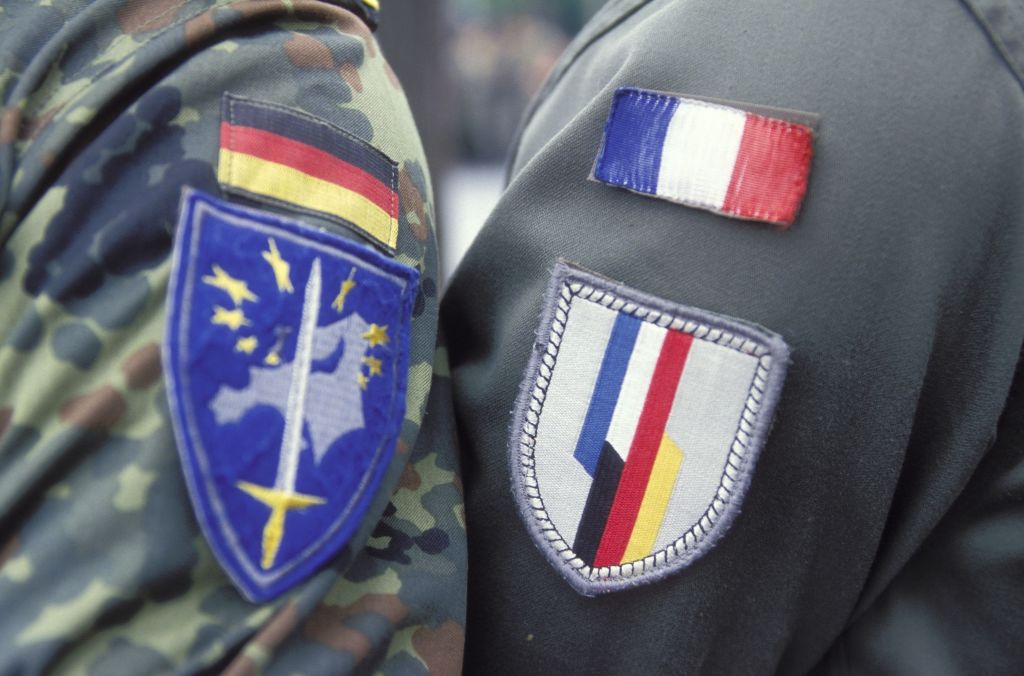
In a recent interview with The Economist, French President Emmanuel Macron presented his geopolitical vision of the European Union’s future. In the process, he spoke of a ‘NATO brain death’, which sounded to many like an echo of US President Donald Trump’s own description of NATO as ‘obsolete’.
But Macron was not echoing his American counterpart. Macron’s concerns about the state of the alliance reflect his recognition of grim facts on the ground. For the first time since World War II, Europe finds itself without a notable ally or partner. Far from an aberration, Trump’s trade wars and betrayal of allies represent a new normal for the world order.
Multilateralism, human rights and respect for international law are now under threat everywhere, owing to demagogic attacks on liberal democratic principles and Trump’s open support for authoritarians. On both sides of the Atlantic, populist politicians regularly mock the idea of an alliance based on shared values, while China and Russia continue to expand their spheres of influence unchecked.
Turkey’s recent invasion of northern Syria, following the betrayal of the Kurds who had led the fight against Islamic State, also undercut EU interests.
As David Sassoli, the new president of the European Parliament, has pointed out, Turkey’s incursion amounts to ‘an act of war carried out by a NATO state’—one that remains officially a candidate for EU accession. Similarly, Macron has warned that Turkey’s ‘unilateral military offensive … poses a humanitarian risk to millions of people’, adding that the Turkish government risks being responsible for ‘helping Daesh rebuild a caliphate’. Likewise, German Foreign Minister Heiko Maas has condemned Turkey’s ‘invasion’ as an outrageous and illegitimate act that will trigger a resurgence of IS and a new wave of refugees.
These are strong words. The question is whether Europe can match them with concrete action. So far, it has imposed an embargo on European arms sales to Turkey. But Turkey’s military—the second most powerful within NATO—is not in urgent need of EU weapons. Besides, Turkish President Recep Tayyip Erdogan now seems to prefer Russian arms, including the S-400 missile-defence system, which Turkey purchased in defiance of NATO objections. Moreover, the EU itself remains dependent on Turkey to hold back the tide of refugees from Syria and elsewhere in the Middle East. Erdogan has long believed that the mere threat of throwing open Turkey’s borders with the EU will keep European leaders in line.
Or, consider the cases of Ukraine and Georgia, where Russia continues to thumb its nose at the EU. Given that the European project’s raison d’être is to expunge wars of aggression and nationalism from Europe, its inability to influence events in either Ukraine or Georgia is quite telling. The EU’s failure to protect its own security against a hostile neighbouring power reveals the extent to which it has been institutionally weakened.
To be sure, the EU has built a vast internal market and extended protections for civil, economic and social rights to countries and communities that were once under the heel of Soviet totalitarian rule. But as important as these political and economic victories are, they have proven insufficient for ensuring Europe’s durability.
Hence, Macron (and many others) have concluded that Europe must confront its destiny of becoming a ‘sovereign power’. Above all, that means creating a European army and developing a fully independent capacity for self-defence. Until very recently, this idea was taboo, particularly in the United Kingdom, which didn’t want to endanger its ‘special relationship’ with the United States. Although British Prime Minister Tony Blair and French President Jacques Chirac agreed in 2003 to coordinate arms procurement and pool military resources for the construction of a battle-ready aircraft carrier group, no follow-up action has been taken, perhaps—as some think—as a result of US objections.
But now, even Germany is beginning to recognise the need for European defence autonomy. In November 2018, Chancellor Angela Merkel delivered a speech to the European Parliament advocating the establishment of ‘a proper European army’. And in little-noted remarks at the Bundeswehr University Munich more recently, German Defence Minister Annegret Kramp-Karrenbauer, a likely successor to Merkel, called for a substantial increase in German military spending, and for the creation of a new national security council to lead a more assertive defence policy.
Such sentiments are hardly confined to Germany. The European Commission’s Eurobarometer survey found that 75% of Europeans favour a common EU defence and security policy, and that a majority expect to see the creation of an EU army in the near future. Moreover, Brexit offers a perfect opportunity for the EU to move towards more shared military equipment and research programs, joint troop trainings, and eventually a common defence strategy.
To that end, France and Germany have committed to reinforce industrial cooperation through projects such as the Future Combat Air System, the Maritime Aircraft Patrol and the Main Ground Combat System. But these won’t get off the ground until 2035. If Europe wants a military posture that isn’t ‘brain dead’, it must stop dithering in the face of growing threats.
There’s ample evidence to show that a European army would be effective in safeguarding European security interests, even in the immediate term. The jihadists who seized North Mali in 2012 were forced out by a French-led military intervention. That mission has been a success so far. But in the absence of a wider European commitment, can it last?
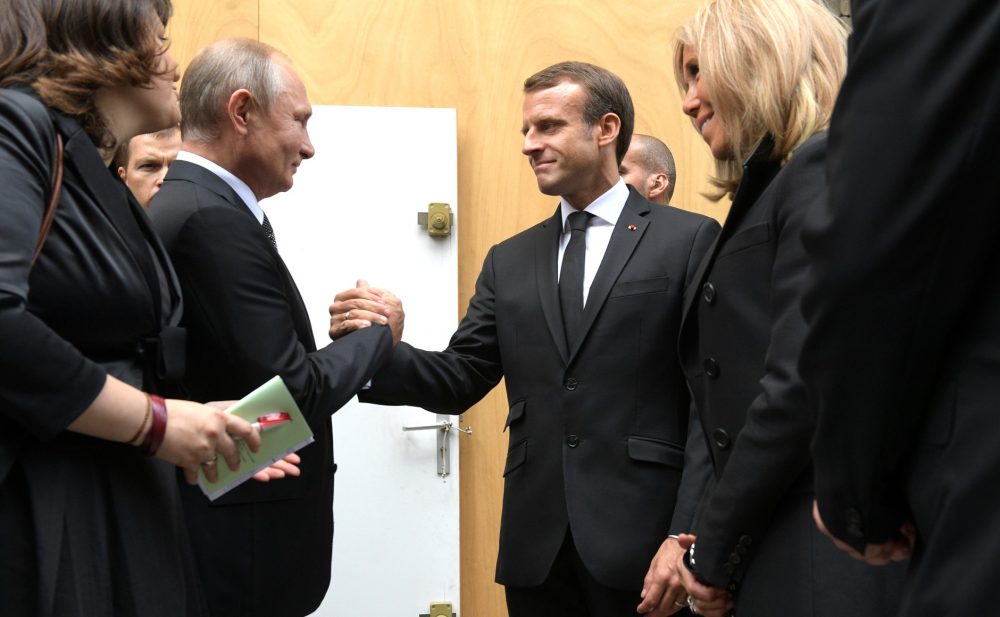
French President Emmanuel Macron is one of those leaders who wants to bend the arc of history. Having upended French politics, he has secured positions for his preferred candidates at the head of the European Commission and the European Central Bank, and is now trying to improve Europe’s relationship with Russia.
French officials are comparing Macron’s Russia strategy to US President Richard Nixon’s opening up to China in 1972. But Macron’s diplomatic overture is more like Nixon in reverse. Rather than wooing China in order to contain the Soviets, Macron wants to ‘ease and clarify [Europe’s] relations with Russia’ in order to prevent Russia from cosying up to China. In so doing, he hopes to secure Europe’s control over its own future.
Macron launched his bid for a new security architecture in a typically grandiose fashion, mirroring the urban planner Georges-Eugène Haussmann’s project to redesign Paris in the 19th century. His first move was to hold talks with Russian President Vladimir Putin at Fort de Brégançon near Toulon before the August G7 summit in Biarritz. But the French ministers charged with implementing the plan have since turned it on its head.
Now, rather than starting with a top-down agenda, they are trying to build European security from the bottom up, while pursuing improved relations with Russia one brick at a time. The French roadmap focuses on five key areas: disarmament, security dialogue, crisis management, values and common projects.
In late August, Macron delivered a speech outlining his vision of a system of ‘concentric circles’ comprising varying degrees of European and Eurasian integration. Such an arrangement would have to secure NATO and EU member states’ borders, allow for a more productive relationship with the Russia-led Eurasian Economic Union and offer ways to manage regional conflicts, not least the one in Ukraine.
The timing of the initiative makes sense. Like Macron himself, Ukraine’s recently elected president, Volodymyr Zelensky, created a political party out of nothing and came to power on the promise of sweeping away a discredited ancien régime. More to the point, Zelensky has made resolving Ukraine’s security situation a top priority.
Macron believes that Russia’s gravitation towards China is at least partly the result of Western mismanagement. He is not naive about the Kremlin’s territorial aggression and election interference. But any country in a position to pose such threats to Europe, he believes, must be engaged face to face. As one French official explained to me, ‘What is true of Iran and North Korea is also true for Russia. We won’t be able to influence it and lead it to more responsible behaviour if we just hide behind a wall of sanctions.’
Adding further urgency to Macron’s efforts is US President Donald Trump, who has confirmed France’s Gaullist suspicions about America’s unreliability as a guarantor of European security. As the US escalates its conflict with China, it inevitably will pay less attention to Europe and the surrounding neighbourhood (the former Soviet Union, the Middle East and North Africa). Worse, the French fear that Trump might pursue a grand bargain with Russia, leaving the European Union hemmed in between the US and China.
Macron’s biggest concern is Europe itself. The EU will never become a global player in the 21st century if it continues to be divided and boxed in by other powers. In Macron’s view, recasting Europe’s relationship with Russia is the first step towards securing European sovereignty. ‘If you don’t have a seat at the great power table’, one French official tells me, ‘it’s because you’re on the menu’. To be sure, the French understand other Europeans’ support for the sanctions imposed on Russia following its annexation of Crimea and incursion into Eastern Ukraine; but they fear the flimsiness of Europe’s broader security policy.
Ideally, the EU should pursue a two-pronged approach to Russia, combining sanctions and NATO’s deterrence with engagement. The French complaint is that there are no meaningful channels for such engagement, and that sanctions don’t address the overall threat that Russia poses. ‘What would happen to European unity’, French officials wonder, ‘if Moscow made a move on Ukraine or Syria and some member states decided to block sanctions renewal?’ Most likely, it would spell the end of the EU’s Russia policy.
Still, Macron’s initiative raises many questions. Whether Putin has any interest in resolving the Ukraine conflict remains to be seen. And even if Europe is capable of detaching Russia from China, it’s unclear whether the Trump administration would stand by and let the European initiative play out.
But the biggest questions are on the European front. Many Central and Eastern European countries worry that they will be second-class citizens in Macron’s framework of ‘concentric circles’. Others fear that Macron will sell out Ukraine by forcing it to settle the conflict on Russia’s terms. And it doesn’t help that Macron launched his initiative without first consulting other Europeans, many of whom are already anxious about America’s waning commitment to EU security.
French officials pointed out that Nixon didn’t consult US allies before embarking on his mission to China. But Nixon’s credibility as a security hawk was unquestioned, whereas France is regarded suspiciously by some in Central and Eastern Europe, who fear that their interests, too, might be sacrificed in a neo-Gaullist attempt to claim a spot on the world stage.
If Macron is to succeed, he will have to prove that he’s committed to the sovereignty and security not just of Central and Eastern Europe, but also of ex-Soviet countries such as Ukraine, Georgia and Moldova. He will also have to pursue deeper collaboration with the Nordic and Baltic states, as well as with the relevant EU institutions and its new high representative for foreign affairs and security policy, Josep Borrell. Above all, Macron’s initiative must create a credible platform for a common approach to security. If it is seen as favouring some countries over others, it and its author will end up on the menu, rather than in the history books.
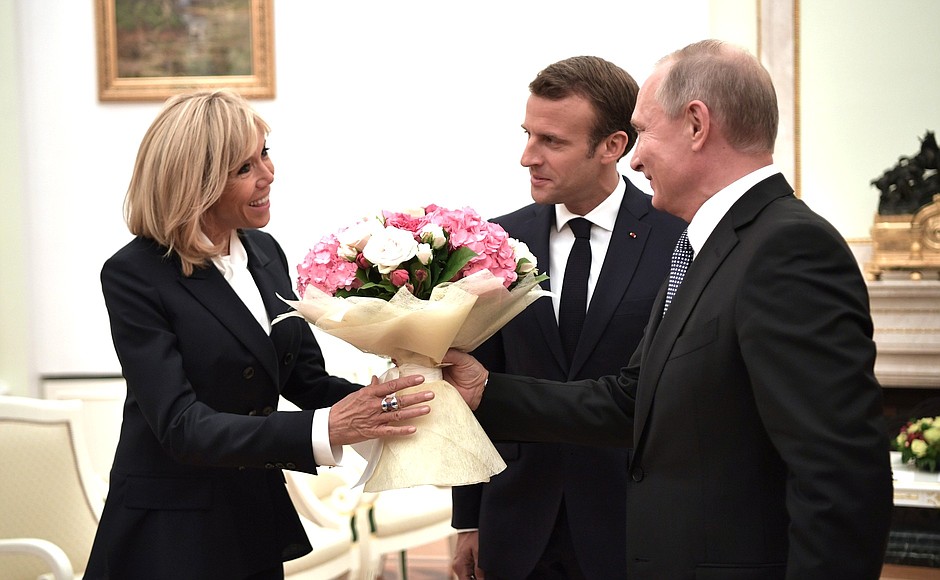
French President Emmanuel Macron is convinced that now is the right time to reset relations with Russia. He has therefore made it a diplomatic priority to restore a climate of trust between Paris and Moscow. Three compelling reasons underlie this move.
First and foremost, the international strategic context has changed dramatically. China is rising, while the United States, although still the world’s dominant power, is distancing itself from its global responsibilities. And Russia, with an ageing, shrinking population and a huge, largely uninhabited landmass, is a natural prey for China’s long-term ambitions.
European leaders shouldn’t resign themselves to passively watching Russia, lacking any other alternative, align with China. Instead, they should try to convince Russians that their future is with Europe, and not as China’s junior partner in a deeply unbalanced relationship. Russia’s destiny lies in the West, not the East.
Moreover, although Russia is no match for China, it has returned as a serious global actor. Many current conflicts, from Eastern Europe to the Middle East, simply cannot be addressed without involving Russia.
This represents a triumph of sorts for Russian President Vladimir Putin, who first came to power nearly 20 years ago pledging to restore his country’s geopolitical clout. In particular, Putin wanted the US to treat Russia not as a mere object of history, as it had done under his predecessor Boris Yeltsin, but as a real interlocutor. And while it might be impossible to restore the bipolar world of the Cold War years, at least the US would be forced to recognise the importance of a modernised and operational Russian army that could intervene in the former Soviet sphere and beyond.
In other words, Russia is back. For Europe to deny this, or simply to try to contain Russia, cannot be a satisfactory basis for a long-term strategic doctrine and realistic diplomacy.
The second reason for France’s new diplomatic initiative towards Russia is to fill a leadership vacuum in Europe. The United Kingdom, which had lately been the most resolute in denouncing Russia’s behaviour, has simply put itself out of the game. Obsessed with the Brexit tragicomedy that has led to the country’s worst political crisis since World War II, the UK has faded from the scene as a serious diplomatic actor.
Meanwhile, Germany, the European power with the closest historical and cultural relationship with Russia, is at the end of a political cycle. It is both dangerous and unfair to underestimate German Chancellor Angela Merkel, but she no longer has the clout or the energy to lead Europe in its dealings with the outside world, or to rally Europeans themselves.
With the UK and Germany currently incapable of playing a major diplomatic role, and Italy, Spain, and Poland in no position to be principal actors, the conclusion is quite simple: partly by default, and partly because of the sheer energy and imagination of its young president, this is France’s moment.
Macron’s attempt to reset relations with Russia is perfectly in tune with France’s Gaullist tradition. Mediating between different systems, and looking beyond the current incarnation of other countries, was Charles de Gaulle’s natural instinct. Behind the Soviet Union or Mao Zedong’s China, the first president of France’s Fifth Republic saw eternal Russia or eternal China. In dealing with another country, therefore, one shouldn’t be paralysed by the nature of its regime.
Reconnecting with that tradition also may fit with Macron’s domestic calculus. By reaching out to the Kremlin, he can appease the economic sectors that are most affected by Western sanctions against Russia, while challenging the traditionally pro-Russia parties of France’s extreme right and left.
But it’s one thing to explain the roots of a policy, or the rationale behind it, and another to justify the decision fully. Central and northern European governments in particular are suspicious of France’s new diplomatic initiative. Why a rapprochement with Russia, they ask, and why now?
Coming from secular France, such Christian charity—giving before having received anything in return—seems either naive or Machiavellian. It also seems to contradict France’s emphasis on values in a European Union context. Surely, critics of Macron’s Russia initiative say, the dichotomy between the defence of political principles within the EU and the practice of diplomacy outside it should not be so great as to endanger the cohesiveness of both.
Furthermore, they argue, Macron is acting alone without having really consulted his European partners and allies. He can hardly claim to speak in the name of Europe if he keeps operating that way, always presenting the other EU members with some kind of fait accompli.
Although I understand these criticisms (and share some of them), I nonetheless support Macron’s effort. The West’s strict policy of containment has failed. A policy of engagement may therefore be justified, provided it isn’t pursued naively or with complete disdain for principle.
Moreover, Macron would be the last person to entertain false illusions about Putin’s Russia. During the 2017 French presidential election, Russia actively campaigned for his far-right rival, Marine Le Pen, by systematically spreading disinformation and fake news. Nor will Macron want Putin to appear to be having his cake and eating it—not least because Russia is persisting in the behaviours that caused its relations with Europe to deteriorate in the first place.
France has made a bold first move to reset relations with Russia. The ball is now in Putin’s court.